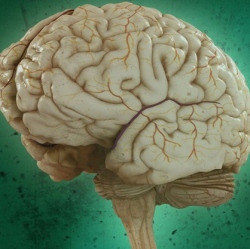
Defective signaling in the brain can cause overeating of high fat foods in mice, leading to obesity, according to one of the first research articles published in the new open access journal Heliyon. The body controls food intake by balancing a need for food to survive with a desire for food for pleasure.
By shifting the balance between these systems, defective brain signaling can cause pleasure to take over, resulting in overeating and obesity. The researchers, from the Neuroscience Program in Substance Abuse (N-PISA) at Vanderbilt University, USA, say understanding the mechanisms behind overeating could help prevent it and reduce the incidence of obesity.
“We have always been struck by how much animals, and even people, will over-consume tasty high-fat foods, even though they might be technically feeling full,” said Dr. Aurelio Galli, one of the authors of the study. “A high fat diet causes people to eat more, which ultimately impairs the ability of obese people to successfully control their caloric intake, lose weight and maintain weight loss. We have conducted several studies trying to understand why a high fat diet has this effect.”
Worldwide, obesity has more than doubled since 1980. Today around two billion people are overweight, and 600 million of these are obese. A number of factors contribute to the obesity epidemic, including economic stresses, changes in the built environment and changing food trends.
Biologically, obesity is the result of defects in the central nervous system that mean the body can’t match its energy intake through food with its energy expenditure. The amount we eat is controlled by survival and reward the body’s metabolism and our pleasure senses, like taste and smell. When specific signals in the brain are impaired, these two systems can fall out of balance, resulting in overeating.
The new study reveals a novel mechanism behind overeating high fat foods for pleasure. A specific signaling pathway in brain cells that control motivation, movement and attention determines the amount of high fat foods consumed. When the signaling is defective, the person only overeats high fat foods.
“We distilled the neurobiological mechanisms involved specifically in overeating for fat,” said Dr. Kevin Niswender, one of the authors of the study. “We defined the why, where, and how of ‘hedonic’ obesity and found that disrupting a specific signaling pathway in the brain can lead to overeating specifically food high in fat.”
The researchers studied one particular signaling pathway in the brain, insulin signaling, and the way it works in specific brain cell circuits. Defects in insulin signaling can override the body’s natural homeostatic mechanisms in favor of the reward mechanisms, leading to obesity.
